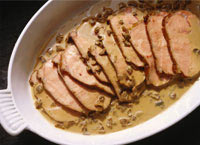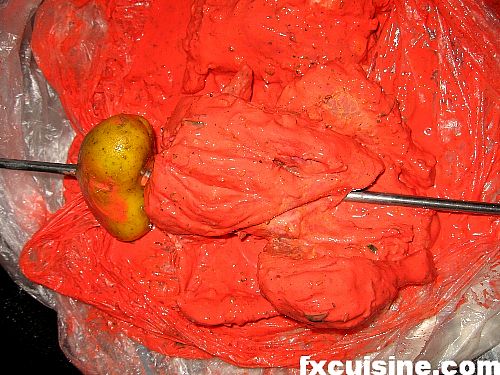The Michigan Department of Community Health reports that an outbreak of foodborne illness at Bonicki’s Sports Bistro, could have resulted from improper food storage.
In a news release Friday morning, April 11, the health department officials said the investigation at Bonicki’s at 1891 East Apple Ave. turned up the presence of Clostridium perfringens, a common bacteria that can cause foodborne illness.
 The bacteria is found throughout nature but “typically causes illness when foods are served after improper storage or held at inadequate storage temperatures,” according to the health department.
The bacteria is found throughout nature but “typically causes illness when foods are served after improper storage or held at inadequate storage temperatures,” according to the health department.
Bonicki’s General Manager Karen Mead responded to the news with a prepared statement.
“We, the Bonicki’s family, apologize for the recent event,” she said. “We would like to thank the community, our loyal customers and the Muskegon County health department.”
On Friday, Ken Kraus, health officer at Public Health-Muskegon County, called the incident a teachable moment for others in the food service industry.
“We are relieved to know the cause and are working with the restaurant to improve their food storage practices,” he said in a news release. “While it may take a bit more effort, following proper food cooling and storage procedures is an important part in preventing foodborne illness.”





.jpg) associated with illness. The chicken was cooked approximately 24 hours before serving and not cooled in accordance with hospital guidelines. C. perfringens enterotoxin (CPE) was detected in 20 of 23 stool specimens from ill residents and staff members. Genetic testing of C. perfringens toxins isolated from chicken and stool specimens was carried out to determine which of the two strains responsible for C. perfringens foodborne illness was present. The specimens tested negative for the beta-toxin gene, excluding C. perfringens type C as the etiologic agent and implicating C. perfringens type A. This outbreak underscores the need for strict food preparation guidelines at psychiatric inpatient facilities and the potential risk for adverse outcomes among any patients with impaired intestinal motility caused by medications, disease, and extremes of age when exposed to C. perfringens enterotoxin.
associated with illness. The chicken was cooked approximately 24 hours before serving and not cooled in accordance with hospital guidelines. C. perfringens enterotoxin (CPE) was detected in 20 of 23 stool specimens from ill residents and staff members. Genetic testing of C. perfringens toxins isolated from chicken and stool specimens was carried out to determine which of the two strains responsible for C. perfringens foodborne illness was present. The specimens tested negative for the beta-toxin gene, excluding C. perfringens type C as the etiologic agent and implicating C. perfringens type A. This outbreak underscores the need for strict food preparation guidelines at psychiatric inpatient facilities and the potential risk for adverse outcomes among any patients with impaired intestinal motility caused by medications, disease, and extremes of age when exposed to C. perfringens enterotoxin. morbidity from 1998 to 2008.
morbidity from 1998 to 2008. luncheon
luncheon reported becoming ill.
reported becoming ill. sample and stool samples that were submitted for testing.
sample and stool samples that were submitted for testing. .jpg)